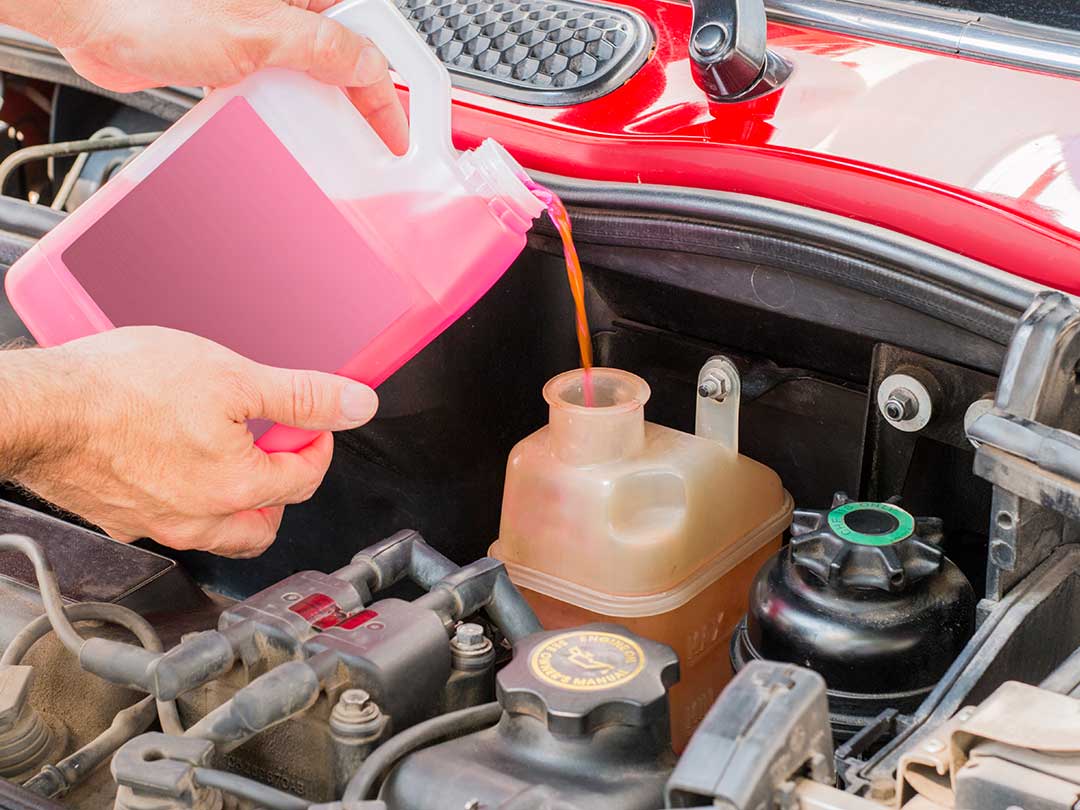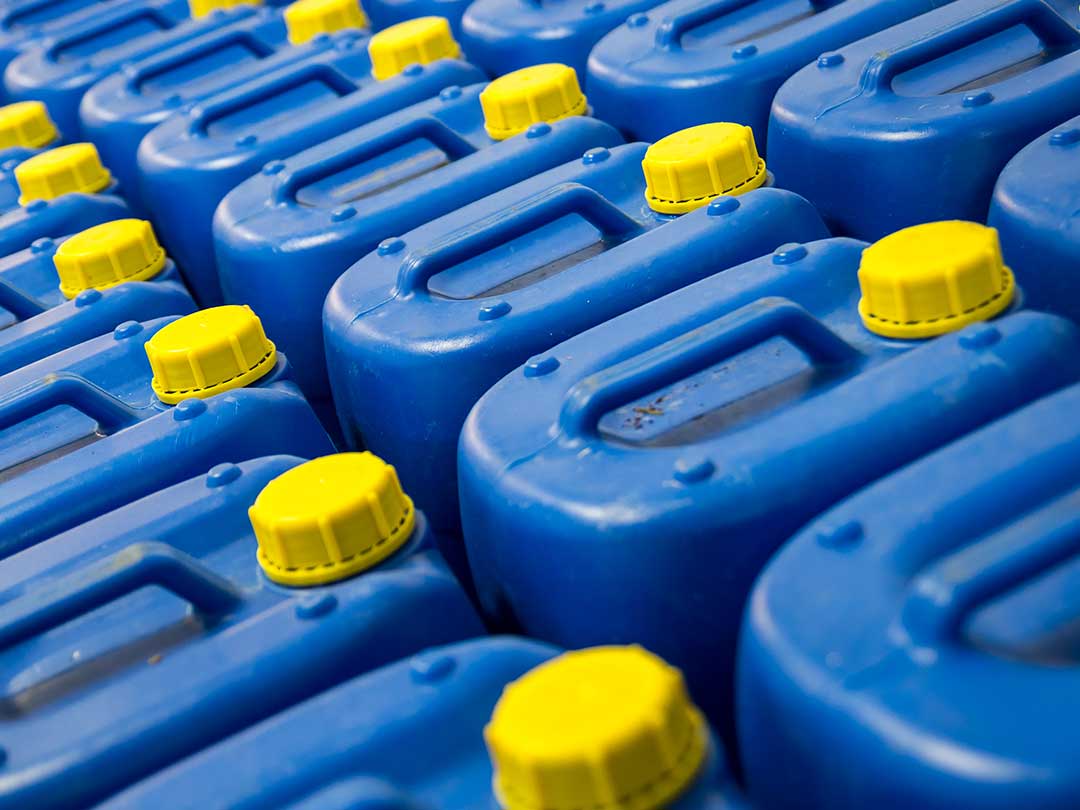There are lots of fluids under your bonnet that help keep your car running in tip top condition. We all know about how important a regular oil check and change is but how often should your power steering fluid, brake fluid or engine coolant be checked or replaced?
Although not included as part of a regular annual service, all of these fluids do degrade over time, potentially causing damage to your vehicle and so should still be serviced regularly. Below we go through how often they should be replaced and signs that might suggest they need replacing earlier.
Power steering fluid
Power steering fluid is a lubricant that is essential for your power steering system to work effectively. It creates a hydraulic link between the steering wheel and the front wheels of your vehicle, making it easier to change direction as well as lubricating the parts of the steering system.
How often should you replace your power steering fluid?
Vehicles, on average, should get a power steering fluid flush every 40,000 to 80,000 miles but individual manufacturers will recommend a power steering fluid service and flush at higher or lower mileage than this so always check your owner’s manual for vehicle-specific recommendations.
Signs that your power steering fluid may need replacing
It is advised that you regularly check the power steering fluid reservoir, both the level on the outside and the colour of the fluid on the inside as well as keeping a check on the behaviour of your vehicle when adjusting the steering wheel. Below are a few issues that may suggest that a power steering fluid replacement is in order or that your power steering system should be checked over.
- Dirt within the fluid in the power steering reservoir
- Fluid colour change
- Difficulty turning your steering wheel
- Noisy or squeaky/screeching steering
Why should you change your power steering fluid?
Over time, power steering fluid oxidises changing colour to a darker red. This means it is less effective and can damage the power steering pump.
A power steering fluid fluid flush will give your vehicle smoother steering and better handling, allow your power steering pump to remain in a good condition and eliminates harmful contaminants and sludge that can build up within the system, helping to prevent costly repairs.
Can you change the power steering fluid yourself?
A power steering flush can be done yourself but you need to have the correct tools to prevent any air getting into the system that could lead to damage and issues with your steering, it also requires a specialist tool to push the old fluid out of the system. We strongly suggest that you ask your local reputable garage, like us here at Peverell Garage, to do the work for you if you aren’t sure.
Brake fluid
Brake fluid is a type of hydraulic fluid that forms an essential component of the braking system of your vehicle. It amplifies your car’s braking force but also acts as a lubricant to stop sticking within the braking system. Without brake fluid your vehicle’s brakes wouldn’t work.
How often should you replace your brake fluid?
Most manufacturers suggest that a brake fluid change should be carried out every two years as part of your vehicle’s maintenance schedule although visual inspections of the fluid reservoir should be carried out more regularly than this.
Signs that your brake fluid may need replacing
Your brake fluid should be almost clear with a slight yellow tinge. Brake fluid that is dark like oil or has floating debris in suggests that your vehicle is in need of a brake fluid flush and replacement.
If your fluid level is low on the reservoir tank under the bonnet then it may suggest a leak, particularly if there are marks under your car that indicate this too. If this is the case you should get your car to us and allow our expert team to check what is going on.
Why should you change your brake fluid?
Brake fluid absorbs moisture which, over time, can build up within your braking system, diluting the fluid. As the water content increases, the boiling point of your brake fluid decreases meaning your brakes can overheat, rendering them inefficient. This is dangerous not only to you, but to other road users too.
Furthermore, corrosion and rust can cause structural damage to your braking system, again leading to brake failure and potentially serious accidents.
Can you change the brake fluid yourself?
No, brake fluid should only be changed by a qualified professional. Brake fluid does not mix well with air so contamination of any air bubbles need to be prevented by applying constant pressure to the system whilst the fresh fluid is injected. Your brakes are your vehicle’s primary safety mechanism and they should not be adjusted by anyone without proper training.
A brake fluid service by a professional will also allow for additional checks and servicing to be done to all parts of your braking system. A visual brake check as well as checks on your anti-lock braking system (ABS) to ensure that it is bleeding the brakes correctly.
Contact us at Peverell Garage if you need your brakes serviced or think your brake fluid needs to be changed.
Engine coolant
Engine coolant is a mix of (usually glycol-based) antifreeze and water that is used to remove heat generated by your car’s engine as part of its cooling system. It helps to prevent the engine from becoming too hot in the summer and from freezing in the winter with little maintenance.
It is not the same as antifreeze which is used elsewhere to lower the freezing point of a solution.
How often should you replace your engine coolant?
Most vehicles tend to contain a long-life engine coolant. The average time between coolant flushes or an engine coolant service is two years or 30,000 miles for silicated coolants or five years or 100,000 miles for extended drain coolants.
Signs that your engine coolant may need replacing
If there are issues with your engine cooling system then several things may occur:
- A higher than normal temperature reading on your dashboard
- The thermometer warning light may illuminate
- A low level of coolant within the reservoir (continually lowering of the fluid level after topping up suggests a leak)
Although there may be other issues (such as a blocked radiator or leaks) it could be as simple as your car needing a coolant change.
Unlike brake fluid and power steering fluid, it is hard to tell by appearances whether your engine coolant has deteriorated. Therefore a test needs to be carried out on the coolant in the reservoir to determine if a flush is required.
Why should you change your engine coolant?
Over time, coolant becomes more acidic, losing its rust-inhibiting properties which can lead to corrosion and damage to the radiator, water pump, thermostat, radiator cap and hoses, eventually leading your car’s engine to overheat.
Can you change the engine coolant yourself?
Although you can change your engine coolant yourself you will need to invest in a specialist tool that prevents air bubbles entering the system as well as all the correct protective equipment to ensure you avoid getting coolant in contact with your skin. It also isn’t a drain as with changing the oil, the coolant flush requires a machine to force out the old fluid whilst injecting new fluid in its place. For most people, it is much easier to bring it to your vehicle to us so that we can do the hard work for you with our specialist equipment.
Which colour engine coolant do you need?
The exact type of coolant that is recommended for your vehicle will be detailed in your vehicle handbook although most stockists will be able to ensure you order the correct type for your vehicle using your registration plate. As always, if you are not sure of what you are doing, allow us at Peverell Garage to do it for you to save you losing sleep worrying about getting it wrong.
Disposing of serviceable fluids
Another key reason that you might prefer to bring your car to us at Peverell Garage for a fluid change and service is the environmental issues around disposal of these fluids.
Coolant, antifreeze, brake fluid and power steering fluid, as well as engine oil, are harmful to the environment and should not be disposed of within household waste or allowed to run into the water system. Old fluids will need to be disposed of at your local hazardous waste disposal service. It is always best to put fluids back into their original labelled container without mixing them when disposing.
We will ensure the fluids are disposed of correctly for minimal environmental impact. Give us a ring on 01752266099 to get booked in for all your fluid servicing needs.


